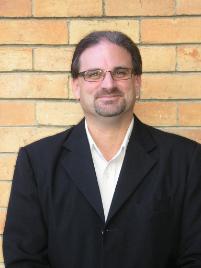Chemistry graduate now making 'outstanding contributions to student learning'
Published on 20 September, 2012
Congratulations to CQUniversity Chemistry graduate Greg Dicinoski who has been listed among recipients of Citations for Outstanding Contributions to Student Learning, awarded by Australia's Office for Learning and Teaching.
Greg's former lecturers at CQUniversity included Professor Graham Pegg and Assoc Professor Dave Druskovich, who are still on staff. He studied at the Rockhampton Campus from 1987-89 for his BAppSci, in 1990 for his BAppSciHons and then from 1991-1994 for his PhD.
Dr Dicinoski is now based at the University of Tasmania, where he's an Associate Professor and Head of School, with teaching interests in the disciplines of analytical, physical, industrial and environmental chemistry.
His national citation is for a sustained commitment to the introduction and use of flexible learning methodologies and improved research-derived undergraduate laboratory student experiences.
Citations for Outstanding Contributions to Student Learning recognise and reward the diverse contributions made by individuals and teams to the quality of student learning.
Citations are awarded to those who have made a significant contribution to the quality of student learning in a specific area of responsibility over a sustained period, whether they are academic staff, general staff, sessional staff or institutional associates.
Citations provide an opportunity for distinctive institutional missions, values and priorities in learning and teaching to be recognised. Citations are awarded for a range of contributions to student learning, both direct and indirect.
* The Australian Awards for University Teaching are designed to recognise quality teaching practice and outstanding contributions to student learning. It is intended that recipients, with the support of their institutions, will contribute to systemic change in learning and teaching through ongoing knowledge sharing and dissemination, for example, presentations within the learning and teaching community, collegial mentoring, pairing and networking, and involvement in university and higher education committees.


